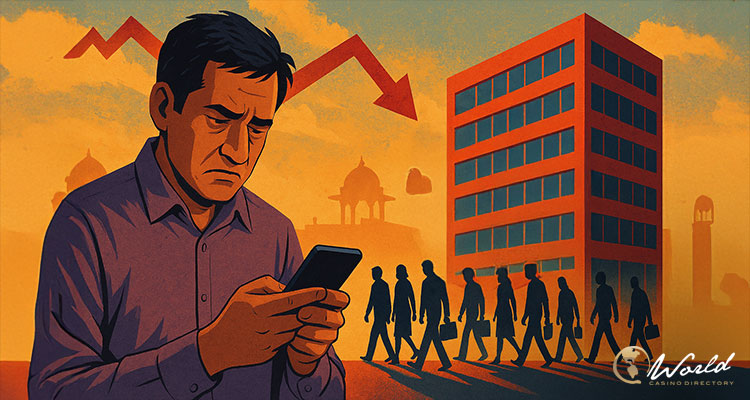India’s sweeping ban on paid online games has triggered massive changes in the local gaming industry, with Mobile Premier League (MPL) confirming significant layoffs across its India operations. The company will downsize by approximately 60%, impacting around 300 of its 500 employees in departments such as marketing, finance, operations, engineering, and legal.
Ban Forces Drastic Workforce Reductions
The move follows the government’s recent decision to outlaw games “played by a user paying fees, depositing money or other stakes” for potential financial gain. Prime Minister Narendra Modi’s administration cited growing concerns over gambling addiction and financial risks, especially among young players. The law, which received presidential assent on August 22, has forced many operators to shut down or rebrand their offerings.
As Reuters reports, in an internal email sent to staff, MPL CEO Sai Srinivas addressed the restructuring, writing, “with a heavy heart we have decided that we will be downsizing our India Team significantly.” He emphasized the company’s intention to support affected employees during the transition, adding, “India accounted for 50% of M-League’s revenues and this change would mean that we would no longer be making any revenue from India in the near future.”
Impact Across India’s Gaming Industry
The sudden legislative shift has sent shockwaves through an industry that was expected to grow to $3.6 billion by 2029, backed by major investors like Tiger Global and Peak XV Partners, formerly Sequoia Capital India. MPL, valued at $2.3 billion in 2021, had seen rapid growth by offering paid fantasy cricket games where players could win cash prizes.
MPL rival Dream11, valued at $8 billion, has also discontinued its fantasy cricket products in India. Other platforms offering real-money poker and rummy have followed suit, halting operations in compliance with the ban. MPL’s India revenue last year was estimated at $100 million, underscoring the significance of this regulatory blow.
Despite these setbacks in its home market, MPL is shifting its focus to free-to-play games while expanding operations abroad, particularly in the United States and Brazil. The company also maintains free-to-play offerings in European markets.
The ban has sparked criticism and legal action from some industry players. A23, another prominent gaming platform, has filed a petition in the Karnataka High Court, arguing that the law “criminalises the legitimate business of playing online games of skill, which would result in the closure of various gaming companies overnight.” The company described the legislation as a “product of state paternalism” and is seeking to have it declared unconstitutional when applied to skill-based games such as rummy and poker.
Industry groups, including the All India Gaming Federation, the eGaming Federation, and the Federation of Indian Fantasy Sports, have echoed similar concerns, warning that the ban could drive players toward unregulated platforms and fuel underground markets. Legal experts at Segev LLC also criticized the policy, noting that “while framed as a progressive step, [the law] in fact moves against the current global tide” of regulation and responsible gaming initiatives.
MPL, however, has chosen not to contest the legislation and instead is focusing on restructuring and international growth. The company’s India-facing site, MPL.live, now displays a message stating that “deposits are no longer available” and that cash games have been disabled in compliance with the new law.


